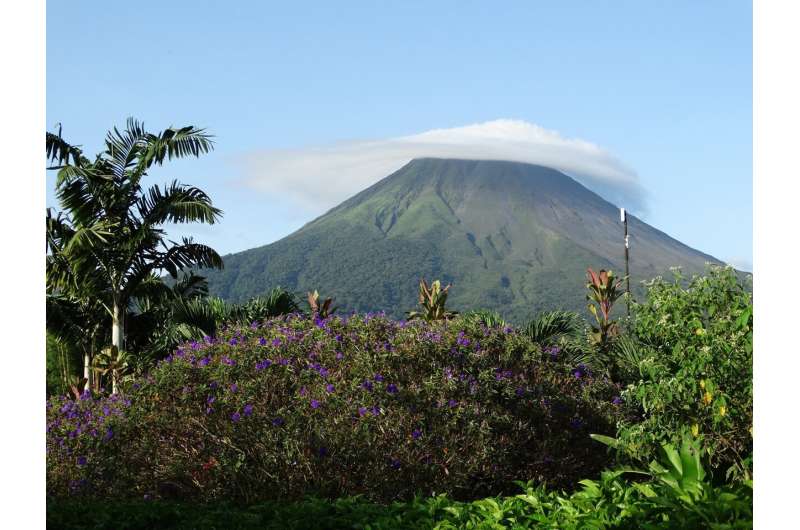Scientists find decreased summer rainfall over Tibetan Plateau after large tropical volcanic eruptions

Tropical volcanic eruptions inject sulfur gases high into the atmosphere, which then convert to sulfate aerosols, spread globally and block the incoming sunlight like a parasol. This can exert significant impacts on the global hydroclimate.
A recent study by Zuo Meng, a postdoctoral fellow from the Institute of Atmospheric Physics (IAP) of the Chinese Academy of Sciences has revealed that large tropical volcanic eruptions caused decreased summer rainfall over the southern Tibetan Plateau.
This work was published in Climate Dynamics on Sept. 19.
Zuo and her collaborators Professor Zhou Tianjun and Associate Professor Man Wenmin analyzed the response of summer rainfall over the Tibetan Plateau to large tropical volcanic eruptions during the last millennium by using multiple reconstructions, observations and large sets of climate model simulations.
They found that both the instrumental data and proxy dataset over the past hundreds of years revealed a significant reduction in summer rainfall over the southern Tibetan Plateau during the first summer following tropical volcanic eruptions, which were further confirmed by the climate model simulations driven by volcanic forcing.
They further investigated the underlying mechanism. Both the dynamic processes related to atmospheric circulation changes and the thermodynamic processes related to specific humidity changes contributed to the decreased rainfall in the southwestern Tibetan Plateau, while the thermodynamic process dominated the reduction of rainfall in the southeastern Tibetan Plateau. The thermodynamic process resulted from decreased atmospheric precipitable water caused by decreased surface temperature after tropical volcanic eruptions. The dynamic processes were caused by increased gross moist stability, spatial distribution of surface cooling and a southward shift of westerlies related to weakening and shrinking of Hadley circulation following tropical eruptions.
"Our results imply that major tropical volcanic eruptions have significant impact on the summer rainfall over the southern Tibetan Plateau, which further decreases the source of supply for the glaciers and runoff output in Tibetan Plateau. We suggest that potential volcanic eruptions should be included in the design of near-term decadal climate prediction experiments," said Zuo.
More information: Meng Zuo et al, Response of summer precipitation over the Tibetan Plateau to large tropical volcanic eruptions in the last millennium, Climate Dynamics (2022). DOI: 10.1007/s00382-022-06463-2
Journal information: Climate Dynamics
Provided by Chinese Academy of Sciences





















